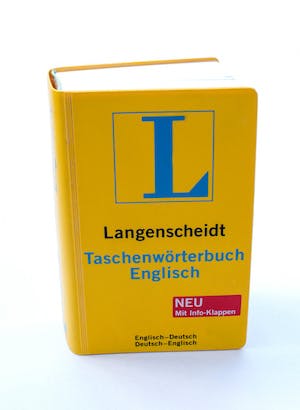We often take language for granted. Many people claim they “perfectly” speak their mother tongue. But who defines “perfection”?
AI has made us aware that technology can venture into anything, even challenge us in areas we consider intrinsically human. It compels us to enhance our language capabilities to maintain the edge and keep ahead of machine output.
Machines challenge us in all areas, the realm of language is no exception.
If future neural machine translation (NMT) solutions continue to expand their enormous amounts of constantly updated language data, will language learning become obsolete?
Perhaps with the aid of NMT and advanced AI, final translation will improve when not supported by any technology?
As technology tries to generate and translate natural language, we will become more sensitive towards what is right or wrong in a final piece of content.
As machines begin reaching grammatical perfection, we may accept objective linguistic correctness, but be more critical of quality. We’ll be more protective and purist about our languages. This is already the case in some instances, particularly in those languages and cultures heavily influenced by English and Western culture.

Will humans keep learning languages?
Technology has facilitated language learning. However, where vocabulary and grammar are concerned, future AI may be hard to compete with.
AI’s ability to quickly and efficiently absorb massive amounts of data and apply it effectively will always surpass human capability. However, humans will continue to have the edge in attaching context and emotions to words.
If AI can reliably translate any language content, who will bother learning the basics of a new language? Even through intensive study, a minimum of a year is usually needed to achieve some level of professional proficiency. Regardless of how hard you study, you must take breaks. Just like any muscle, the brain needs down-time to rest and process.
Allowing new and complex information to sink in and rewiring your brain takes time, regardless of your ability, and humans often pick the quickest, most convenient way of doing things. Sooner or later, the effort of acquiring a foreign language to professional standards may seem like an unsurmountable task. Especially if we must compete with what machines can provide at the press of a button.
Further improvements in AI may see us focusing on our native languages — ensuring they evolve, and developing neologism to satisfy our ambition. However, this could mean that learning a second language will lose importance and become only a hobby for a few.
Machine translation may achieve high standards which can only be topped by linguistic experts. Hence, only a few will pursue the mastery of a foreign language for leisure or business purposes

Will AI ever achieve human-level language production and be generally accepted for use?
As we create, nurture, and develop our languages, AI may at some point create its own. These languages could originate from a combination of human languages it considers most ideal to express thoughts and objectives.
AI will have its own reasons for choosing one expression over another to best describe a situation. If no relevant existing word is found, it may create new words. The tables may turn. We may study the definitions of words in AI languages, even incorporate them into our own. We may even translate between human and artificially created languages.
Regardless of how smart AI becomes, it will need systems and processes to pick up on-going changes in human languages and map them to wordings in its existing database.
Future NMT solutions will only be able to match human-level translations once they learn to analyse context and draw from experience. This would involve a better understanding of the people involved in a conversation.
For the time being, machines still have a way to go. The processes of current NMT solutions are still far too narrow. To improve, AI must part with the flawed perception of language as but a sequential combination of words to create meaning.
The winning technology will be one that can expand its analytical and learning capacity to understand the subconscious language decision-making process of humankind. We should be excited about the future of AI and machine translation.
A hybrid solution of NMT and humans will help protect and develop the richness of languages. Who knows, AI may even expand existing languages in ways we cannot yet imagine.
(N.B. If you’re interested in marketing applications of AI, Econsultancy’s Supercharged conference takes place in London on May 1, 2018 and is chocked full of case studies and advice on how to build out your data science capability. Speakers come from Ikea, Danske Bank, Channel 4, Just Eat, Age UK, RBS and more)
Related reading
Comments